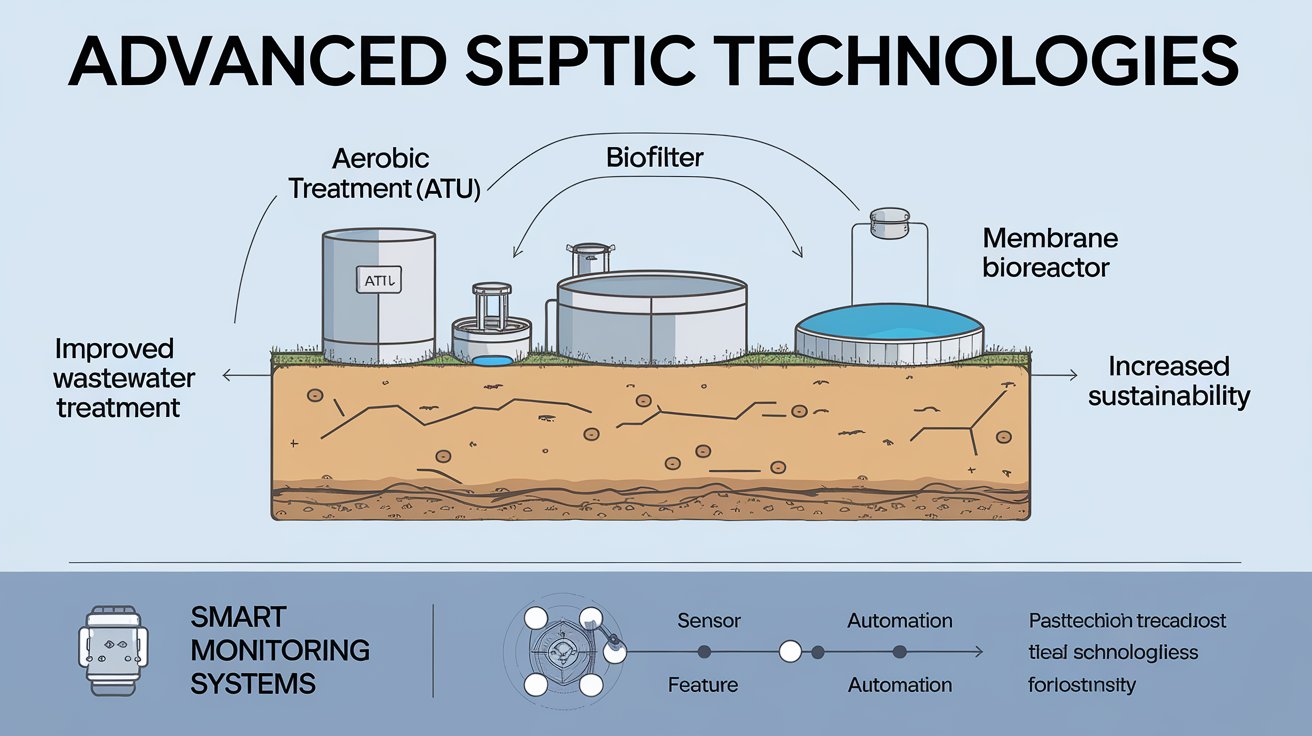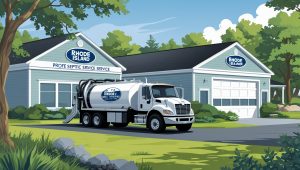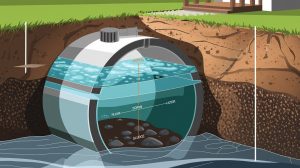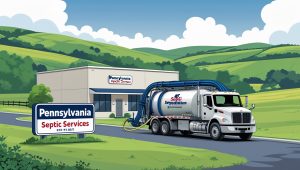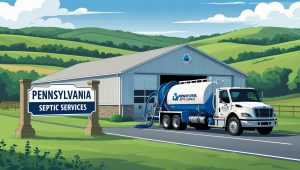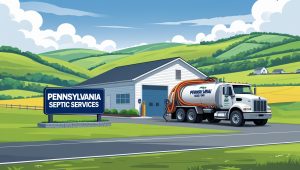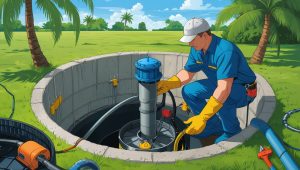Table of Contents
- What Are Advanced Septic Technologies?
- The Benefits of Advanced Septic Technologies
- Key Innovations in Advanced Septic Technologies
- Advanced Monitoring and Control Systems
- Challenges and Considerations
- Future of Septic Technologies
In today’s world, efficient and sustainable wastewater management is more important than ever. Traditional septic systems have long been the go-to solution for many homes, but as environmental concerns grow and technology advances, new innovations are reshaping the way we manage waste. Advanced septic technologies are leading the charge, offering smarter, more effective solutions to address modern challenges. These innovations not only improve the efficiency and lifespan of septic systems but also contribute to environmental sustainability by reducing water pollution and promoting resource conservation. In this article, we’ll explore what advanced septic technologies are, their benefits, and how they are revolutionizing wastewater management for homeowners and the planet.
What Are Advanced Septic Technologies?
Advanced septic technologies are modern innovations designed to improve the performance and sustainability of septic systems. These technologies go beyond traditional methods by utilizing advanced treatment processes to treat wastewater more effectively. Instead of relying on basic filtration and soil absorption, they incorporate processes like aerobic treatment, biofiltration, and membrane bioreactors. These systems can handle wastewater more efficiently and with a reduced environmental impact.
These technologies also focus on minimizing pollutants and conserving water. They are particularly useful in areas with poor soil conditions or high population densities, where traditional septic systems may not be effective. Advanced septic technologies offer long-term benefits, including improved performance, reduced maintenance, and better environmental outcomes.
The Benefits of Advanced Septic Technologies
Advanced septic technologies offer numerous benefits over traditional systems, making them an attractive option for homeowners and communities alike. These technologies are designed to address common challenges such as inefficiency, high maintenance costs, and environmental impact. Let’s explore some of the key advantages.
Efficiency
One of the primary benefits of advanced septic technologies is their improved efficiency in treating wastewater. Traditional systems often rely on gravity and soil absorption to break down waste, which can be slow and ineffective, especially in areas with heavy soil or limited space. Advanced systems, such as aerobic treatment units (ATUs), use oxygen to accelerate the decomposition process, ensuring faster and more thorough treatment of wastewater. This leads to better water quality being returned to the environment.
Cost-Effectiveness
While advanced septic systems can require a higher initial investment, they tend to save money over the long run. These systems reduce the need for frequent maintenance and pumping, which can be costly for traditional septic tanks. With more efficient treatment processes, the need for repairs and replacements is also minimized, saving homeowners both time and money. In addition, because these systems often include monitoring features, they help detect issues early, preventing costly failures.
Sustainability
Advanced septic technologies play a crucial role in promoting sustainability. They are designed to reduce the environmental impact of wastewater by filtering out harmful contaminants and reducing the potential for groundwater contamination. These systems can also conserve water by using reclaimed water for irrigation or other non-potable uses. By improving the quality of wastewater before it is released into the environment, advanced septic systems contribute to healthier ecosystems and more sustainable water use.
Key Innovations in Advanced Septic Technologies
Advanced septic systems include several innovations that enhance treatment efficiency and reduce environmental impact. These technologies are helping to shape the future of wastewater management.
Aerobic Treatment Units (ATUs)
Aerobic Treatment Units (ATUs) are one of the most effective advancements in septic technology. Unlike traditional systems, which rely on anaerobic bacteria, ATUs use oxygen to promote aerobic bacteria growth. This speeds up the breakdown of organic matter, resulting in cleaner effluent. The treated water is less likely to contaminate the surrounding environment. ATUs are ideal for areas with high water tables or poor soil conditions. They are also used in residential, commercial, and industrial settings due to their efficiency.
Biofilters
Biofilters are another important innovation in septic systems. These filters use natural materials like sand, peat, or synthetic media to remove pollutants. As wastewater flows through the biofilter, microorganisms break down harmful substances such as nitrogen and phosphorus. Biofilters are often combined with other technologies, like ATUs, to improve water quality. They help remove a wide range of pollutants and result in cleaner effluent.
Membrane Bioreactors (MBRs)
Membrane Bioreactors (MBRs) represent a cutting-edge approach to wastewater treatment. MBRs combine biological treatment and membrane filtration. The biological process breaks down organic waste, while the membrane filters remove solids and microorganisms. The result is water that is nearly free of pollutants. MBRs are ideal for areas with strict environmental regulations. These systems are often used where high-quality effluent is required, such as in sensitive environmental areas.
Advanced Monitoring and Control Systems
Incorporating advanced monitoring and control systems into septic technologies is revolutionizing the way we manage wastewater. These smart systems provide real-time data on system performance, allowing for more efficient management and early detection of potential issues. Let’s look at some key features of these systems.
Smart Septic Systems
Smart septic systems are designed to monitor the status of the septic tank remotely. These systems can track key performance metrics like tank levels, water flow, and effluent quality. With this real-time data, homeowners and service providers can receive alerts about potential issues before they become major problems. For example, if the tank is nearing capacity, the system can send a notification, prompting timely pumping and preventing backups. Smart septic systems can also optimize usage based on the household’s water consumption patterns, improving efficiency and extending the life of the system.
Sensors and Automation
Sensors are a crucial component of advanced septic systems. These devices monitor various aspects of system performance, such as water levels, tank pressure, and effluent quality. They help ensure the system is functioning at peak efficiency. Some sensors even detect early signs of malfunction, such as blockages or leaks, and send notifications to homeowners or service providers. Automation features further enhance these systems by adjusting operations automatically based on real-time data. For example, if the water level rises too high, the system can trigger an automatic drainage process to avoid overflows.
Automatic Adjustments for Household Usage
Many advanced septic systems are designed to adapt to the unique water usage patterns of each household. For example, if a family is using more water during a particular season, the system can adjust its treatment processes to handle the increased load. This ensures that the system can continue operating efficiently, regardless of changes in water usage. Automatic adjustments help maintain optimal performance and prevent unnecessary strain on the system.
Challenges and Considerations
While advanced septic technologies offer numerous benefits, there are also challenges and considerations to keep in mind. Understanding these factors can help homeowners make informed decisions when selecting the right system for their needs.
Cost of Installation
One of the primary challenges of advanced septic technologies is the initial cost of installation. These systems typically require a higher upfront investment compared to traditional septic systems. The complexity of the technology, along with the need for specialized equipment and professional installation, contributes to the increased cost. However, this higher initial cost is often offset by long-term savings in maintenance and wastewater treatment efficiency. Over time, homeowners may save money by avoiding frequent repairs and pumpings.
Maintenance Requirements
Although advanced septic systems require less maintenance than traditional systems, they do require specialized care. Routine maintenance and monitoring are still necessary to ensure that the system continues to perform optimally. For example, components like sensors, pumps, and biofilters may need periodic cleaning or calibration. Homeowners should also be prepared for occasional service visits to inspect and maintain the system. While these maintenance requirements may be more involved than traditional systems, they are still manageable with proper care and regular checkups.
Regulatory Compliance
Advanced septic systems must meet local environmental regulations, which can vary depending on the region. Some systems may require permits or inspections to ensure they comply with standards set by local authorities. Homeowners should research local laws and consult with professionals to ensure their system is properly installed and meets all regulatory requirements. Compliance with these regulations is essential to avoid fines and ensure the system operates in an environmentally responsible manner.
Future of Septic Technologies
As the need for sustainable and efficient wastewater management grows, so does the innovation in septic technologies. The future holds exciting advancements that promise to make septic systems even more effective, environmentally friendly, and cost-efficient. Here’s a look at some of the trends and developments to watch for in the years ahead.
Trends to Watch
The next generation of septic technologies will likely focus on increasing automation and efficiency. For instance, systems may become more integrated with home automation, allowing homeowners to monitor and adjust their septic system through smartphone apps or voice-controlled devices. This will make system management easier and more intuitive.
Another trend is the integration of renewable energy sources into septic systems. Solar-powered septic systems could become more common, reducing the environmental impact of wastewater treatment and offering energy savings to homeowners. As solar technology continues to improve and become more affordable, it’s likely that septic systems will increasingly adopt renewable energy solutions.
Innovation and Sustainability
Sustainability will continue to be a driving force in the evolution of septic technologies. Expect to see innovations that not only treat wastewater more efficiently but also recycle it for use in irrigation, landscaping, or other non-potable purposes. Closed-loop systems that allow for the reuse of water within the household may become more widespread, contributing to water conservation efforts.
Additionally, advances in materials and filtration methods are likely to improve the long-term sustainability of septic systems. New materials may be developed that enhance filtration and treatment while reducing wear and tear on system components. These innovations will help to further minimize environmental impact, making advanced septic systems even more eco-friendly.
Advanced septic technologies are revolutionizing the way we manage wastewater, offering improved efficiency, sustainability, and cost-effectiveness. From aerobic treatment units to smart monitoring systems, these innovations are helping homeowners and communities tackle the challenges of traditional septic systems. While the initial cost and maintenance requirements may be higher, the long-term benefits of advanced septic systems—such as reduced environmental impact, improved performance, and lower operational costs—make them a valuable investment.
As the technology continues to evolve, we can expect even more advancements that will further enhance the performance and sustainability of septic systems. Whether you’re considering an upgrade to your existing system or installing a new one, staying informed about these innovations will help you make the best decision for your home and the environment.
Monthly Septic Maintenance Plans
Safe Chemicals for DIY Septic Cleaning
Directory | Rhode Island Septic Service Providers : Best Professionals
High Septic Tank Levels: How to Measure and Interpret Them for System Health
Chemicals to Avoid in Septic Systems
Directory | Pennsylvania Septic Service Providers | Part 3
Directory | Pennsylvania Septic Service Providers | Part 2
Directory | Pennsylvania Septic Service Providers | Part 1
Seasonal Pumping Considerations: Seasonal Changes Affect Pumping
How to Replace a Septic Pump in Lake Mary, Florida

